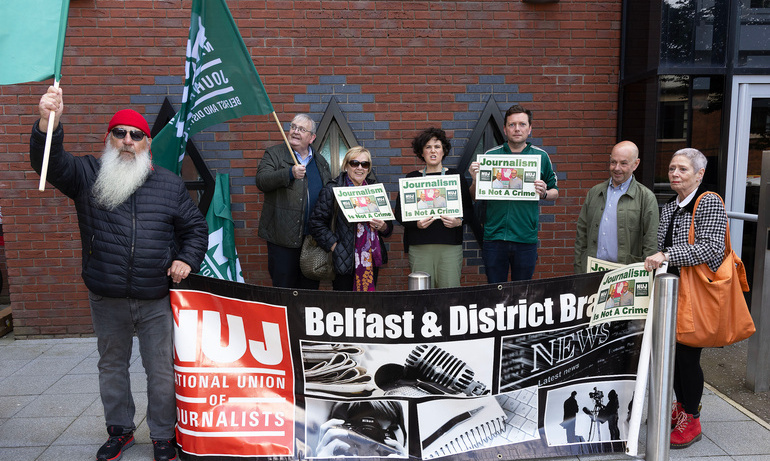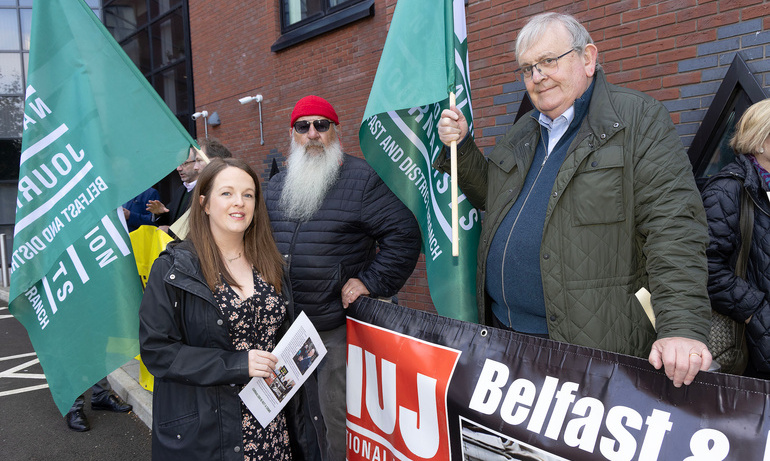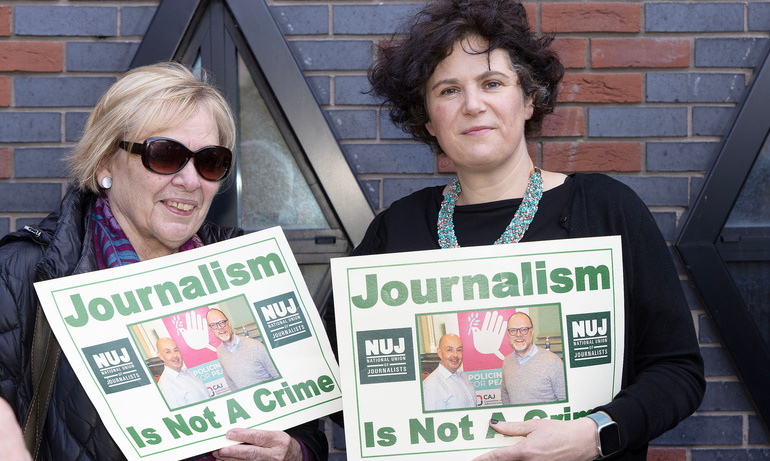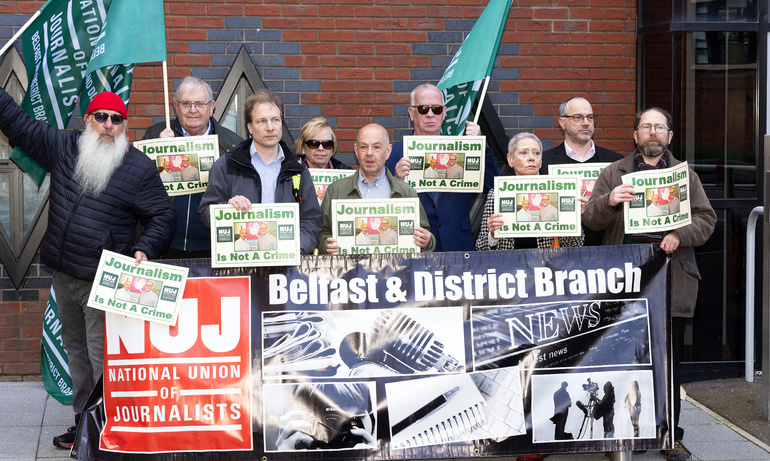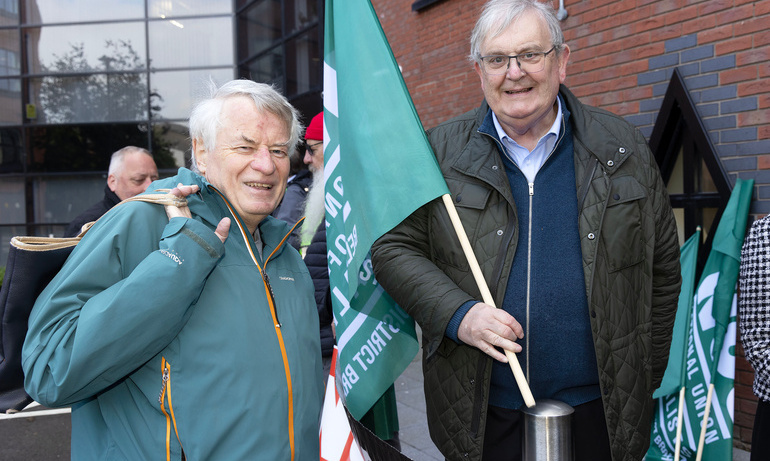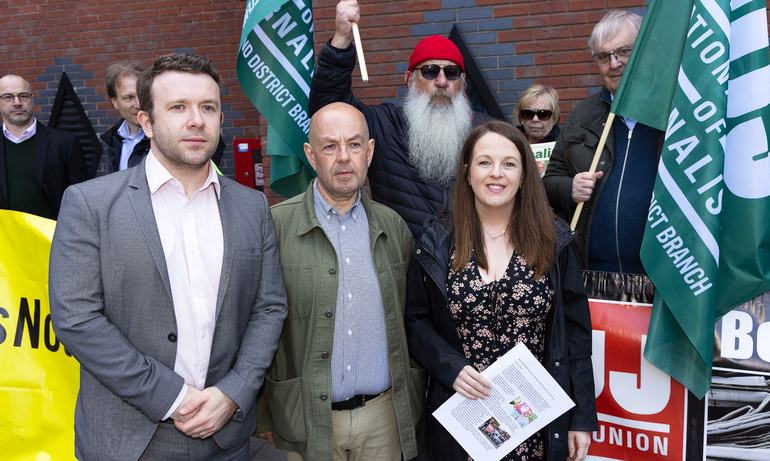PSNI report on access to journalist’s records grounds for grave concern
The NUJ has expressed grave concern at a report of the PSNI Chief Constable regarding the use of covert powers against journalists and lawyers.
The report was presented to the Policing Board of Northern Ireland on Thursday (June 6) and revealed that 323 applications for journalists’ phone data including 10 attempts to identify confidential sources had been made by the PSNI. In addition, 500 applications were reported in relation to applications for phone data held by lawyers.
The report was presented against the backdrop of revelations at the Investigatory Powers Tribunal regarding the surveillance of investigative journalists Barry McCaffrey, Trevor Birney and Vincent Kearney and the recent announcement by the chief constable of the appointment of a King’s Counsel investigation, into the use of surveillance powers.
Séamus Dooley, NUJ assistant general secretary, has been appointed to a group of experts and stakeholders which will advise Angus McCullough KC.
Commenting on yesterday’s report Dooley said:
“The NUJ has grave concern at the scale and extent of the surveillance revealed yesterday. The report raises fundamental questions about how the PSNI view journalists and the official perspective of the role and function of journalists in a democratic society.
"The NUJ, Amnesty International and the Committee for the Administration of Justice have been to the fore in highlighting concerns at the use of surveillance powers, covert and non-covert to track the work of journalists and to undermine journalistic sources. Police accessing journalists’ communications data for the explicit purpose of identifying confidential sources is unacceptable and we do not accept the attempt to reframe ten incidents which were unambiguously for the purpose of identifying their confidential sources on ten occasions.
“We were alarmed to learn that the private communications of lawyers and their clients were the subject of applications. There were 500 applications for surveillance on lawyers, 365 of which related to private communications data.
“The McCullough review is an important development and may offer NUJ members an opportunity to clarify the practices and procedures used by the PSNI and allay some concerns. However, it is not a substitute for an independent inquiry established under statute by the Policing Board or the Justice Minister. The outcome of the McCullough review should inform the actions of the Policing board and will have to consider the eventual outcome of the ongoing IPT cases, which have shaken the confidence of the public in the PSNI.”
NUJ Belfast & District branch solidairty protest on 6 June ahead of a meeting of the Northern Ireland Policing Board.

